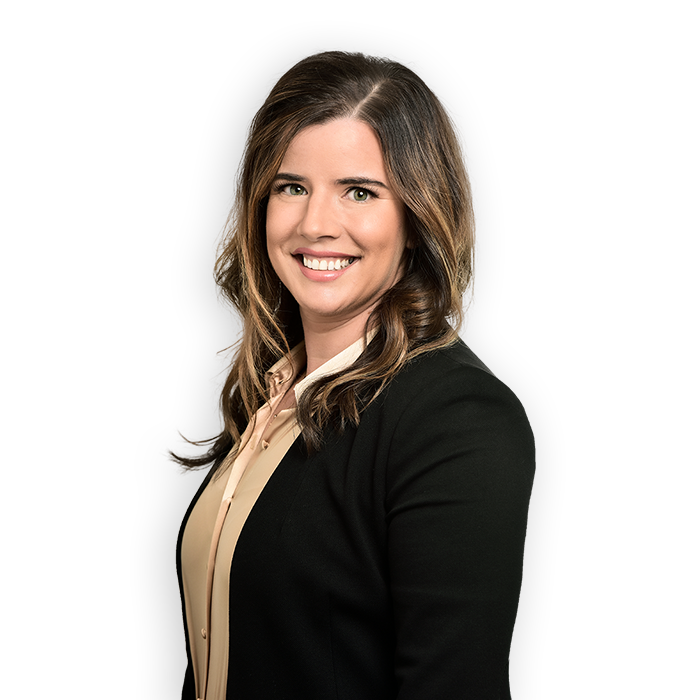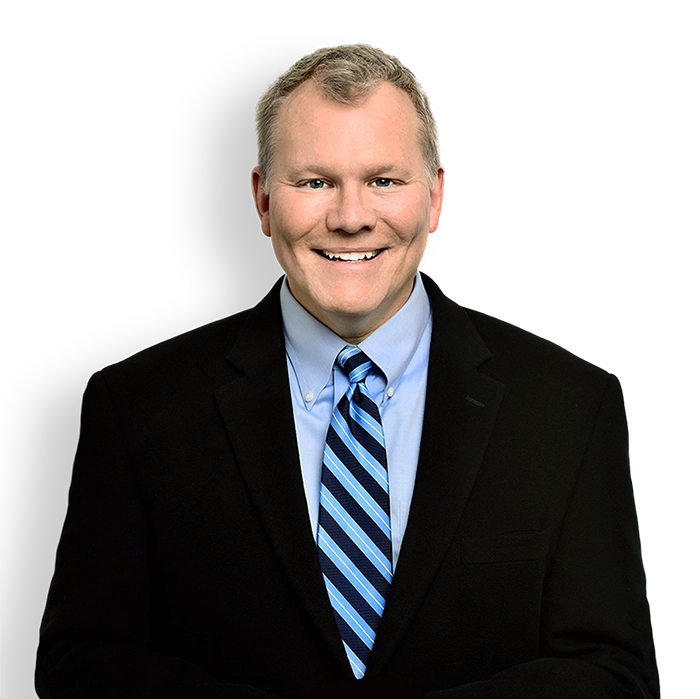CMS Issues Second Interim Final Rule to Expand Provider Flexibility and Coverage During the COVID-19 Pandemic

On Thursday, April 30, 2020, the Centers for Medicare and Medicaid Services (CMS) revised its blanket waivers under section 1135 and a second interim final rule with comment period (Final Rule), providing health care providers and suppliers with expanded flexibilities to respond to the novel coronavirus 2019 (COVID-19) pandemic. The interim final rule, which will be published in the Federal Register on May 8, 2020, provides additional flexibility for health care providers during the COVID-19 public health emergency (PHE). Like prior waivers and CMS’s first interim final rule, the Final Rule and waiver focus on COVID-19 testing, telemedicine, and alternative care sites, but they also include key provisions concerning accountable care organizations (ACOs), hospital outpatient departments, and teaching hospitals. The following alert explores several significant items included in the Final Rule and waiver.
Hospital Outpatient Departments
CMS notes the importance of providing hospitals with adequate flexibility to increase capacity. Building off the hospital without walls initiative set forth in the first interim final rule on the COVID-19 PHE, the Final Rule expands the hospital services that can be provided in temporary expansion locations, including beneficiary homes.
- Extraordinary Circumstances & Relocations. CMS is temporarily adopting an expanded version of its Section 603 extraordinary circumstances relocation policy during the COVID-19 PHE to permit provider-based departments to temporarily relocate to off-campus locations while continuing to be eligible for payment under the outpatient prospective payment system (OPPS). This exception is time-limited to the period of the PHE to enable short-term relocations to improve access to care, although a hospital could go through CMS’s standard extraordinary circumstances application process to obtain approval for permanent relocations in appropriate situations. The Final Rule lays out the process for obtaining approval of the temporary relocation of an excepted off-campus provider-based department or on-campus provider-based department during the PHE.
- Outpatient Services in a Temporary Expansion Location, Including the Patient’s Home. Under the Final Rule, three categories of services can be furnished in a temporary expansion location of a hospital (including a patient’s home) and reimbursed as hospital outpatient department services. These are: (1) outpatient therapy, education and training services (discussed further with respect to partial hospitalization program (PHP) services, below), (2) hospital outpatient clinical staff services furnished in-person, and (3) hospital services associated with a professional service delivered by telehealth (discussed further in the telehealth section, below). With respect to hospital in-person clinical staff services, the Final Rule particularly addresses would care, chemotherapy administration, and other drug administration that can be provided in the patient’s home as a temporary expansion location. Other requirements for hospital services—including the physician order and supervision requirements—continue to apply to temporary expansion locations.
- Billing for Outpatient Services in the Patient’s Home. The Final Rule also specifies that, where an on-campus or excepted off-campus provider-based department is properly relocated (or partially relocated) to a patient’s home or other temporary expansion location, under the temporary extraordinary circumstances relocation exception policy, those services will be billed with the “PO” modifier and will receive full OPPS payment. Absent such a relocation, however, the services provided in a temporary expansion location (including the patient’s home) would be billed with the “PN” modifier and reimbursed under the physician fee schedule-equivalent rate (currently 40% OPPS).
- Provider-Based Rural Health Clinics (RHCs). Under the Final Rule, an RHC that is provider-based to a hospital and was exempt from the nation per-visit payment limit because it had fewer than 50 beds prior to the start of the PHE would continue to be exempt for the duration of the COVID-19 PHE.
Expanded Flexibility for Medicare Telehealth Services
Throughout the COVID-19 PHE, CMS has exercised its waiver authority to relax its normal billing restrictions concerning “Medicare telehealth services.” After receiving considerable stakeholder input during biweekly calls the agency is calling “Office Hours,” CMS has again used that authority to alter the “Medicare telehealth services” regulatory landscape, both through the second COVID-19 Final Rule and by modifying its 1135 blanket waiver.
Expanded Provider Types. “Medicare telehealth services” are typically covered only when provided by certain categories of practitioners listed at 42 C.F.R. Section 410.78(b)(2). During stakeholder calls convened by CMS to discuss telehealth issues during the PHE, many provider organizations have noted that this prevented allied health practitioners, specifically physical therapists, occupational therapists, speech language pathologists, and others, from receiving payment for important treatment provided via telehealth during the PHE. As such, CMS has authorized additional telehealth waivers, waiving the “eligible practitioner” requirement so that the previously mentioned providers may now also provide “Medicare telehealth services.”
Audio-Only “Medicare Telehealth Services.” Normally, “Medicare telehealth services” must be furnished through an “interactive telecommunications system,” which Medicare regulations define as including video technology. See 42 C.F.R. Section 410.78(a)(3). For the duration of the PHE, CMS will allow providers to use audio-only equipment to provide telephone evaluation and management (E/M) services, as well as for behavioral health counseling and educational services. (The applicable codes are listed here.)
Specifically, CMS further revised 42 C.F.R. Section 410.67 to address Medicare coverage and payment of behavioral health services furnished by opioid treatment programs (OTPs). In addition to allowing the therapy and counseling portions of weekly bundles of services furnished by OTPs to be furnished using audio-only telephone calls, CMS is also revising 42 C.F.R. Section 410.67(b)(7) on an interim final basis to allow OTPs to furnish periodic assessments via audio-only communications for the duration of the PHE, when beneficiaries do not have access to audio/video technology.
CMS also announced that it is “cross-walking” CPT codes 99212, 99213 and 99214 to 99441, 99442, and 99443, respectively. The agency explained that it has learned from stakeholders that these audio-only E/M codes are being furnished to replace care that would otherwise be provided in-person or via telehealth and often when beneficiaries do not have access to the audio-video technology needed to furnish a “Medicare telehealth service.“ CMS believes that this change will “better capture” the resources required to furnish these audio-only services during the PHE. In its press release, CMS reported that the change will increase payments for these services from a range of $14-$41 to approximately $46 – $110. These payment rates are retroactive to March 1, 2020.
Revised Process for new “Medicare Telehealth Services.” CMS maintains a list of CPT codes which qualify as “Medicare telehealth services” on its website, and typically adds a few new codes each year. Medicare regulations dictate that unless a service is included on the “Medicare telehealth services” list, it is not payable as a “Medicare telehealth service.” However, for the duration of the PHE, CMS will utilize a new “process for adding or deleting services,” to be codified at 42 C.F.R. Section 410.78(f). Specifically, instead of the annual Physician Fee Schedule (PFS) rulemaking process which is typically used to add to the “Medicare telehealth services” list, CMS will use a sub-regulatory process to modify the list. This will significantly speed up the process by which CMS may update the “Medicare telehealth services” list.
Hospital billing as originating site for telehealth services even when patient located at home. In the first interim final rule, CMS instructed physicians and other practitioners providing telehealth services to beneficiaries at home to bill as if the services were furnished in person. See 85 FR 19233. While under the rule, the furnishing practitioner would be paid under the PFS at the “facility” rate as if the service was furnished in an outpatient department, the rule neglected to provide for the hospital to submit any claim for such telehealth services.
In this second Final Rule, CMS acknowledged that when a physician or practitioner who ordinarily practices in the hospital outpatient department furnishes a telehealth service to a patient who is located at home, the hospital may nevertheless still provide some administrative and clinical support for that service. As such, for the duration of the COVID-19 PHE and retroactively effective March 1, 2020, CMS is allowing hospitals to bill for services furnished remotely by hospital-based practitioners to Medicare patients registered as hospital outpatients, including when the patient is at home. Note that the patient must be a registered outpatient of the hospital and her home must be made a temporary “provider-based department” of the hospital under the current waivers in effect for the COVID-19 PHE, meaning that all applicable conditions of participation, to the extent not waived, are met. Furthermore, CMS is permitting hospitals to bill the originating site facility fee for the services to reimburse for the administrative or clinical support provided by the hospital.
CMS also identified certain outpatient therapy, counseling, and educational services that hospital clinical staff can furnish (using telecommunications technology) incident to a physician’s service during the COVID-19 PHE to a beneficiary who is registered as an outpatient when those services are furnished in the patient’s home. This change greatly expands the types of services healthcare providers that can provide using telehealth technology; for example, hospital clinical staff can now also remotely furnish psychotherapy (for example, HCPCS code 90832) to the patient, as long as the requirements referenced above are met.
FQHCs and RHCs as distant site providers. Prior to COVID-19 PHE, rural health clinics (RHCs) and federally qualified health clinics (FQHCs) could not furnish distant site telehealth services to Medicare beneficiaries. Section 3704 of the CARES Act did away with this prohibition, mandating that CMS pay for Medicare telehealth services provided by RHCs and FQHCs to ensure that beneficiaries located in rural and other medically underserved areas can also access care from their home without having to travel. CMS issued the following guidance on this expanded flexibility given to FQHCs and RHCs during the COVID-19 PHE. Telehealth services can be furnished by any health care practitioner working for the RHC or the FQHC, as long as doing so falls within his or her scope of practice. Additionally, practitioners can furnish telehealth services from any distant site location, including their home, during the time that they are working for the RHC or FQHC, and can furnish any telehealth service that is included on the list of Medicare telehealth services maintained by CMS, including those that were added on an interim basis during the PHE.
Notably CMS will not be reimbursing FQHC or RHCs at their PPS/AIR rates, respectively, for services furnished via telehealth, but rather using a methodology established by the CARES Act based upon the fee-for-service rates be used to calculate an amount to be paid for telehealth services, currently set at $92.03 (which is the average amount for all PFS telehealth services on the telehealth list, weighted by volume for those services reported under the PFS). Additionally, the Medicare Advantage (MA) wrap-around payment does not apply to these services.
COVID-19 and Antibody Testing
The Final Rule emphasizes the importance of both COVID-19 testing and antibody testing, and includes a number of regulatory changes to expand the availability and coverage of both tests, as follows:
- Physician Order. The Final Rule adopts interim policy permitting any healthcare professional authorized under state law to order a covered Medicare COVID-19 test, influenza virus test, or respiratory syncytial virus without the need for a written treating physician or non-physician practitioner order.
- Medicaid Coverage. Under the Final Rule, Medicaid coverage for laboratory tests and X-ray services to diagnose or detect COVID-19 (or the communicable disease named in a subsequent PHE) is expanded in order to allow the tests to be delivered in ways that minimize transmission of the communicable disease.
- Antibody Testing. Medicare will cover FDA-authorized COVID-19 serology tests (antibody tests) on an interim basis during the PHE for beneficiaries with known or suspected current or past COVID-19 infection.
- Specimen Collection Reimbursement. Hospitals and practitioners that assess beneficiaries and collect laboratory specimens for COVID-19 testing will be eligible for separate payment when the patient does not receive any other covered service.
PHP Flexibilities for Hospitals and Community Mental Health Centers (CMHCs)
Recognizing the goal of infection control, as well as continuity of behavioral health services, the Final Rule permits providers (hospital or CMHC staff) to furnish certain PHP services remotely to patients in a temporary expansion location of the hospital or CMHC, which may include the patient’s home. The Final Rule provides:
- Remote Services. For a beneficiary registered as an outpatient of a hospital outpatient departments (HOPD) or CMHC, the following types of services can be furnished remotely during the COVID-19 pandemic: (1) individual psychotherapy; (2) patient education; and (3) group psychotherapy. CMS has provided a list of the individual psychotherapy, patient education, and group psychotherapy services (along with respective HCPCS Codes) that providers can furnish remotely to a beneficiary.
- Location. The PHP services must be provided by hospital or CMHC staff and the beneficiary must be located in a temporary expansion location of the PHP or CMHC, including a beneficiary’s home. In the case of a hospital, the temporary expansion location must be made provider-based to the hospital.
- Audio-Only Communication. CMS has indicated that, given the nature of these services, telecommunications technology with audio and video capabilities should be utilized. Only if a beneficiary does not have access to video communication technology, can providers use audio only communication technology.
- Billing. When billing for PHP services provided remotely, the hospital and CMHC should bill as if the services were furnished either in the HOPD or CMHC and consistent with any specific requirements for billing Medicare during the COVID-19 PHE and in off-campus HOPD, including the use of applicable modifiers and condition codes.
- Unchanged Requirements. All other PHP requirements are unchanged, including the requirement that all PHP services be ordered by a physician, supervised by a physician, certified by a physician, and furnished in accordance with coding requirements by a clinical staff member working within his or her scope of practice. In addition, there must be documentation in the medical record of the reason for the visit and the substance of the visit.
Teaching Hospitals
CMS, as part of its effort to increase hospital capacity and flexibility during the pandemic, has instituted the following rule changes:
- IME Payments. Hospital beds temporarily added during the COVID-19 PHE will not decrease a teaching hospital’s indirect medical education (IME) payments, as those beds will be excluded from the intern-and-resident-to-bed ratio used to calculate its IME payments;
- Resident Time at Other Hospital. Teaching hospitals can claim the time spent by residents training at another hospital where (1) the resident is sent to the other hospital in response to the COVID-19 pandemic; (2) the time spent and activities performed by the resident at the other hospital are consistent with any guidance in effect during the COVID-19 PHE for the approved medical residency program at the sending hospital; and (3) the resident’s time immediately prior and/or subsequent to the COVID-19 PHE timeframe was included in the sending hospital’s Full-Time Equivalent (FTE) resident count.
- Resident FTE Cap. During the COVID-19 PHE, the presence of residents in non-teaching hospitals will not trigger the establishment of per resident amounts or FTE caps at those non-teaching hospitals.
Accountable Care Organizations (ACOs)
In addition, CMS is making changes to the Medicare Shared Savings Program (MSSP) to provide flexibility to participating Accountable Care Organizations (ACOs). Specifically, CMS is:
- adjusting its financial methodology to account for COVID-19 costs, in recognition of regional variations, so all MSSP ACOs are treated fairly regardless of the extent to which their respective patient populations suffer from the pandemic;
- allowing ACOs whose participation would otherwise end this year the option to extend for another year, and
- allowing ACOs that would otherwise be required to increase their financial risk the option to maintain their current risk level for next year.
Non-Physician Practitioners
Scope of Practice. In order to expand access to needed care and provide greater flexibility, the final rule expands the scope of practices to permit:
- Physician assistants (PAs), nurse practitioners (NPs), clinical nurse specialists (CNSs), and other non-physician practitioners to supervise diagnostic testing;
- Therapy assistants to furnish maintenance therapy
- Pharmacists to provide services (g., medication management) incident to a physician’s service.
Home Health Agency (HHA) Care Planning. The final rule amends Medicare and Medicaid regulations to permit certain non-physician practitioners to perform certain functions in accordance with state licensing laws.
- Medicare Amendments. CMS permanently amends regulatory definition of “allowed practitioner” to include NPs, CNSs, and PAs, thereby allowing these practitioners to certify, establish, and periodically review the home health plan of care, as well as supervise the provision of items and services for beneficiaries under the Medicare home health benefit, as permitted under state law. CMS also made corresponding updates to the regulation governing payment for home health services to include NPs, CNSs, and PAs as individuals who can certify the need from home health services.
- Care Planning (Medicaid). CMS amends Medicaid home health regulations to allow licensed practitioners other than physicians to order medical equipment, supplies, and appliances when practicing in accordance with state law, and to allow an NP, CNS, and PA to order other services covered under Medicaid home health benefit, including part-time or intermittent nursing services, home health aide services, and if included in the state’s home health benefit, therapy services.
Reporting Requirements and Measures
The Final Rule also delays or suspends of certain reporting requirements for hospitals, HHAs, skilled nursing facilities (SNFs), inpatient rehabilitation facilities (IRFs), long-term care hospitals (LTCHs), and, in the case of skilled nursing facilities, imposes additional reporting requirements. Finally, the Final Rule amends certain measure approval criteria relating to the Merit-Based Incentive Payment System (MIPS).
- Hospital Value Based Purchasing (VBP) Program. In the Final Rule, CMS grants Extraordinary Circumstances Exceptions to all hospitals participating in the Hospital VBP Program, and Hospitals will not be required to report National Healthcare Safety Network (NHSN) Healthcare Associated Infections measures and Hospital Consumer Assessment of Healthcare Providers and Systems survey data for Q4 2019, Q1 2020, and Q2 2020. CMS will also exclude qualifying claims data from the mortality, complications, and Medicare Spending per Beneficiary measures for Q1 2020 and Q2 2020.
- Home Health VBP. The Final Rule provides that exceptions or extensions for the Home Health Quality Reporting Program will apply to the submission of the same data for the Home Health VBP (HHVBP) model, and grants an exception to all HHAs participating in the HHVBP Model for certain April and July 2020 New Measure reporting requirements.
- HHA, SNF, IRF, and LTCH Quality Measures. The Final Rule delays the compliance date for collection and reporting of Transfer of Health Information Quality Measures and certain Standardized Patient Assessment Data Elements to October 1st of the year that is at least 1 full fiscal year after the end of the COVID-19 PHE (for HHAs, IRFs, and LTCHs) and October 1st of the year that is at least 2 full fiscal years after the end of the COVID-19 PHE (for SNFs).
- SNF Reporting. As detailed in our May 1, 2020 alert focused on the Long-Term Care industry, the Final Rule also sets forth additional reporting rules, including weekly reporting on COVID-19 infections, testing, capacity, and workforce issues and next-day reporting of certain suspected or confirmed COVID-19 cases to residents and their families.
- MIPS Qualified Clinical Data Registry (QCDR) Measure Approval Criteria. CMS amends QCDR measure approval criteria, delaying policies for completion of QCDR Measure Testing and collection of QCDR Measures by one year, to the beginning of the 2022 performance period.
For further information, please contact Katrina Pagonis, Mark Reagan, Jordan Kearney or Andrea L. Frey in San Francisco, Nina Adatia Marsden, Alicia Macklin or Charles Oppenheim in Los Angeles, Mark Johnson in San Diego, David J. Vernon, Martin Corry, or Monica Massaro in Washington, D.C., Jeremy D. Sherer in Boston, or your regular Hooper, Lundy & Bookman contact.





